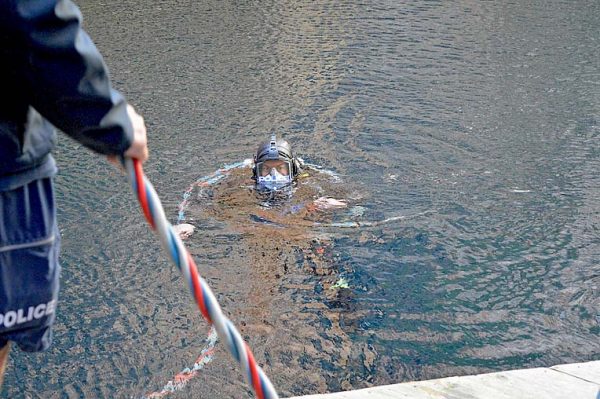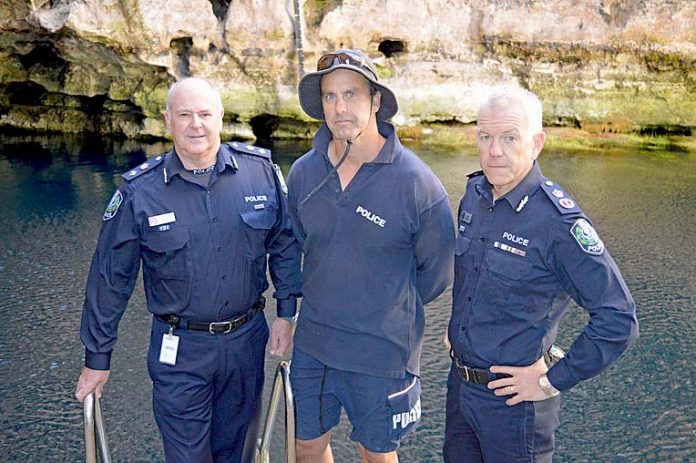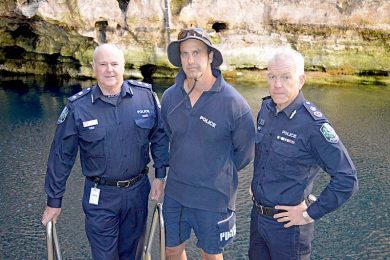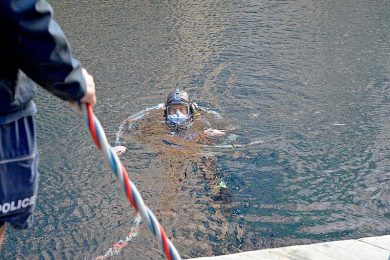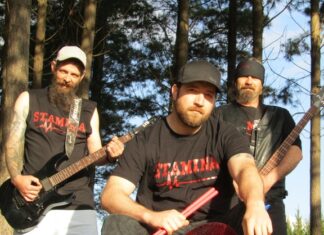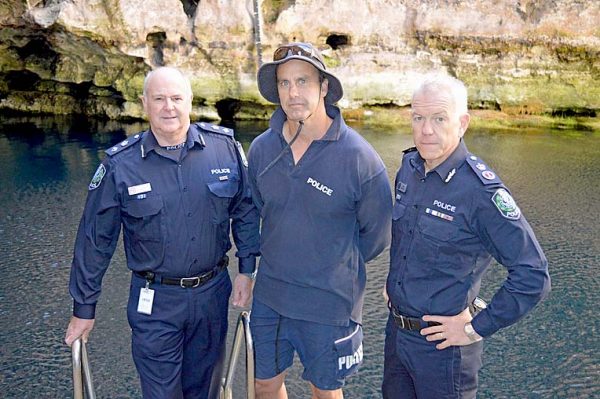
SOUTH Australian Police Commissioner Grant Stevens stopped over at the region’s spectacular Kilsby’s Sinkhole this week to watch police divers complete a number of deep water training drills.
On a two-day visit to the region, Comm Stevens paid the SA Police Water Operation Unit a special visit during their yearly training session at the privately owned Mount Schank sinkhole.
“I try to get out to this region as often as I can and the water operations unit is of particular interest to me,” Comm Stevens told The Border Watch at the site.
The Adelaide-based diving unit arrived at the sinkhole last week to conduct “surface supply dives” to a depth of 50 metres as part of their search and recovery training.
They were joined by divers from the Victoria Police Search and Rescue Squad as part of a knowledge sharing initiative between the two specialised units.
In contrast with regular scuba diving where a diver’s primary air supply is carried in a cylinder on the body, surface supply diving feeds air to a diver through a pressurised hose from the surface.
However, divers still carry a number of tanks for secondary air supply and emergency purposes, but their main supply of air comes from above the water’s surface.
Because of their full-face masks, divers are able to communicate with a dive supervisor on the surface, who assists them in completing their tasks successfully.
The dive supervisor is also on hand to control emergency situations should they occur.
“The unit operates throughout the state and has a diverse range of functions, from body recovery to unblocking sewer ponds,” SA Police Water Operations Unit Sergeant Dave Bacchus said.
“Incorporating the Water Police, we work in salt and fresh water, most notably on the Murray River and at the coast.
“Unfortunately the majority of our work relates to drownings and we have been called out to recover the bodies of divers in the past.”
The unit also operates in dry caves and shafts in cases where the air has been contaminated.
But the majority of their work remains in and under the water.
Sgt Bacchus said the reason the unit favoured Kilsby’s among other sinkholes in the region was because of its clear water, depth and accessibility.
“Our maximum standards operation measure is 50 metres, which the sinkhole provides,” he said.
“We have been visiting the site for decades and have always been treated exceptionally well by the Kilsby family.”
Prospective members of the unit go through an “exceptionally tough” four-week selection process where the failure rate is around 80pc.
“It is physically demanding and candidates are subjected to very high stress levels,” Sgt Bacchus said.
“But the rewards are without doubt worth the effort.”
